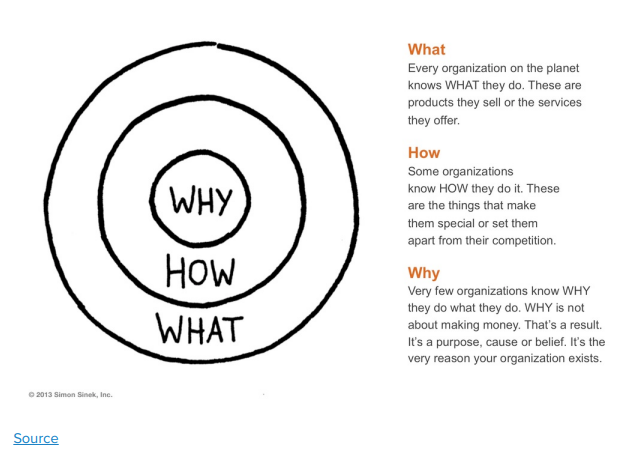How To Become an Entrepreneur | Oberlo
Uncategorized
What Is Entrepreneurship? It’s a State of Mind
The term ‘entrepreneur’ evokes various images, from self-made success stories to tech startup founders. While dictionaries like Merriam-Webster define an entrepreneur as someone who organizes and assumes the risk of a business, the reality is more complex. Not all business owners are entrepreneurs, and entrepreneurship can thrive within larger organizations.
Key traits like resilience, adaptability, and the ability to learn from failure are crucial. PJ Leimgruber of Neoreach emphasizes the importance of versatility and learning in entrepreneurship, highlighting the journey from discomfort to finding one’s strengths and building a successful team.
This ebook aims to demystify entrepreneurship, discussing its essential traits, the process of starting a business, and providing resources for aspiring entrepreneurs.
5 characteristics of an entrepreneur
To understand what makes an entrepreneur, it’s crucial to look beyond the mere desire for financial gain. While many enter entrepreneurship for wealth, success is not guaranteed, and financial rewards may take time. True entrepreneurship demands more than just the motivation for money. Here are five key traits of entrepreneurs:
- Driven: Entrepreneurs must have a strong work ethic and passion, often working long hours to realize their vision.
- Resourceful: Successful entrepreneurs actively seek knowledge and opportunities, finding innovative solutions to challenges, as Justin Gold did with his nut butter company.
- Resilient: The ability to withstand setbacks and continue pushing forward is essential. Entrepreneurs like Tim Kock understand the cyclical nature of business, preparing for both good and bad times.
- Persuasive: Convincing others to believe in and support your vision is crucial. Persuasion is a powerful tool, as demonstrated by the Fyre Festival’s initial success despite its eventual failure.
- Empathetic: Understanding and relating to the needs and feelings of others can greatly enhance business relationships and team dynamics.
These characteristics are foundational for navigating the entrepreneurial journey, emphasizing the importance of personal qualities in business success.
Building Your Entrepreneurial Foundation
Venturing into entrepreneurship without a clear direction can quickly become overwhelming. The challenge of choosing a path that aligns with your interests and is financially viable is a significant hurdle. This dilemma often halts aspiring entrepreneurs, especially those without a groundbreaking idea. However, as Adii Pienaar, founder of Conversio, points out, understanding your core values and motivations is crucial. There are two types of entrepreneurs: visionaries and opportunists, each driven by different motivations and ways of tackling challenges.
The essence of entrepreneurship lies in self-awareness, knowing why you want to start a business, which doesn’t necessarily require a world-changing vision. Sometimes, it’s about recognizing a market opportunity that offers financial stability and personal fulfillment.
Successful entrepreneurs often blend their business ventures with personal passions, leading to greater motivation, interest, and job satisfaction. This alignment is key to enduring the entrepreneurial journey and increasing the likelihood of financial success.
In the next chapter, we’ll delve into the concept of ikigai, finding a balance between personal desires and professional needs, defining your purpose and values, identifying entrepreneurial skills, and setting personal goals to pave a unique entrepreneurial path.
Ikigai: Find your sweet spot
Japanese culture’s concept of ‘ikigai’ signifies ‘a reason for being,’ essentially what motivates you to wake up each morning. Japan has profoundly explored the pursuit of genuine happiness and fulfillment. Although not exclusively career-oriented, ikigai is highly relevant to one’s professional life and is worth considering in the entrepreneurial journey. The ideal business venture should intersect what you love, what you excel at, what can provide financial rewards, and what is needed by society.

Achieving the ideal of aligning your passion with what the world needs, what you’re skilled at, and what can be monetized is challenging. Many struggle to find a way to earn a living from their passions, and it’s perfectly fine if your business doesn’t solve a global need. It’s also okay if your business primarily satisfies the criteria of leveraging your skills and generating income. Understanding your core values and the reason behind your entrepreneurial venture is crucial, which will be discussed further.
Before proceeding, assess the importance and feasibility of these four elements for you, aiming to identify your unique niche. Documenting your thoughts and ideas is beneficial as they evolve and as you gain deeper insights into entrepreneurship.
Define your ‘why’ and core values
Expanding on the idea of ikigai, it’s crucial to understand the purpose behind your actions and the core values that steer your journey. Simon Sinek’s ‘Golden Circle’ concept, central to his popular book “Start With Why,” emphasizes the importance of starting with ‘why.’ According to Sinek, while all businesses know what they do and some understand how they do it, only a select few genuinely grasp why they do it.

Determining the motivations behind starting your business, beyond just making money, means pinpointing the core values that will inform every aspect of your business, including customer interactions. Purchases are not just transactions; they reflect the customer’s identification with your brand’s values. In today’s entrepreneurial landscape, it’s insufficient to merely offer desirable products or services. Demonstrating shared values with your potential customers is essential.
For example, WeWork prominently displays its mission and values on its website, signaling a commitment to those values and seeking customers who resonate with them. While you don’t have to be as explicit, your values should be evident in your branding.
To uncover your core values, consider what problems you aim to solve, who you wish to help, how you plan to assist them, and the impact your business will have on people’s lives. Reflect on these questions as you develop and refine your business concept, allowing your understanding of your values to evolve as you progress toward launching your venture.
Uncover the core values and purpose behind your business. Click to continue reading and download the complete guide to entrepreneurial success.
The Table of Contents of “How To Become an Entrepreneur” Guide:
- What Is Entrepreneurship? It’s a State of Mind
- 5 characteristics of an entrepreneur
- Are you cut out for it?
- Building Your Entrepreneurial Foundation
- Ikigai: Find your sweet spot
- Define your ‘why’ and core values
- Identify your entrepreneurial skills
- Map your route
- How to Find a Good Business Idea
- 1. Imagine your ideal workday
- 2. Find a problem to solve
- 3. Choose between products and services
- 4. Pick your most promising business idea
- How to Validate Your Business Idea
- Conduct a market analysis
- Talk directly to your target market
- Build an MVP (minimum viable product)
- Choosing the Right Business Model
- Popular business models
- Best business partnership options
- Partnering up vs. going solo
- Business Funding and Finances 101
- Evaluate your relationship with money
- Understand debt vs. equity
- 4 ways to fund your startup
- How to Start a Business – Officially
- Legal issues with starting a business
- Writing a business plan
- Inspiration and Resources for Your Next Steps
- Best entrepreneur books
- Digital resources for new entrepreneurs
- Resources for women entrepreneurs
- Entrepreneur quotes
- There’s no better time than now
Number of Pages:
- 120 pages
Pricing:
- Free





